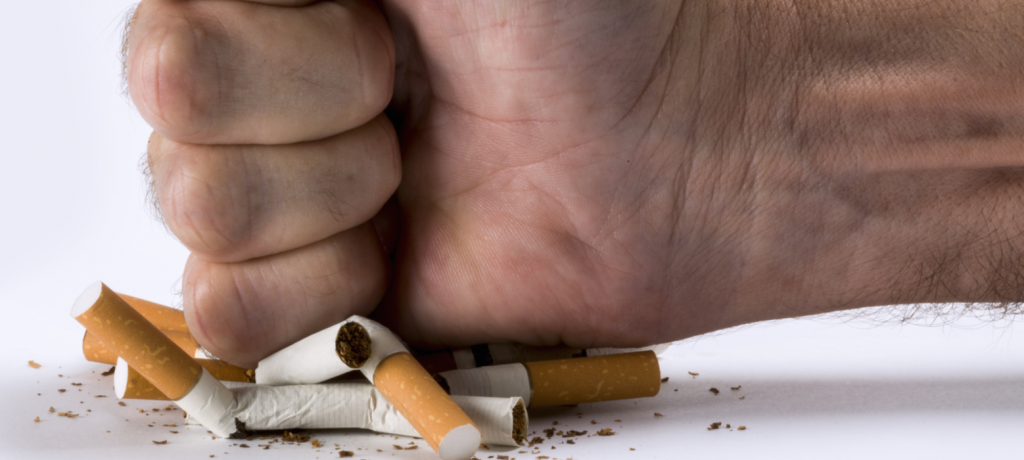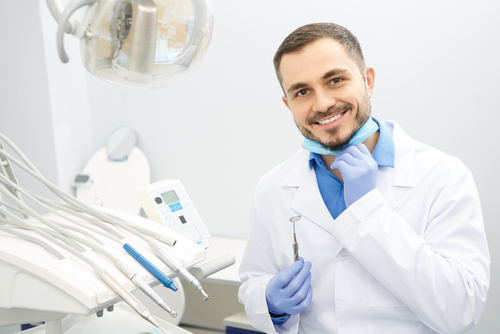Resource Library
Start Reading

Did you know that tobacco consumption is a top risk factor for gum disease and tooth loss?
In recognition of October as Healthy Lung Month, this article addresses the question: “What does smoking do to your teeth?” While most people understand that smoking has a negative effect on overall health, its impact on your oral health is not always fully understood.
Tobacco has a destructive effect on teeth and gum tissues. People who use tobacco products can experience any of the following:
 Tooth discoloration. Repeated exposure to nicotine can stain the tooth enamel. It’s not uncommon for the teeth to take on a yellow or brownish appearance because of tobacco use.
Tooth discoloration. Repeated exposure to nicotine can stain the tooth enamel. It’s not uncommon for the teeth to take on a yellow or brownish appearance because of tobacco use.Vaping refers to the aerosol vapor produced by an e-cigarette or similar devices. Though e-cigarettes do not contain tobacco smoke, they are no less dangerous. The aerosol vapor consumed when vaping consists of fine particles containing toxic chemicals.
Research shows that when teeth exposed to the vegetable glycerin and flavoring in vaping aerosol carry 4x the amount of bacteria of non-exposed teeth. An upsurge in the popularity of e-cigarettes, especially among young people, has been associated with a rise in oral health problems. Scientists are finding that the vapors damage the DNA can damage the mucous lining of your mouth. Over time, these changes cause inflammation and may trigger the development of cancer. People who use e-cigarettes are at greater risk for gum disease, tooth loss, and oral cancer.
Smoking hurts the teeth in a variety of ways, from discoloration to cavity formation, tooth loss, and gum disease. Any type of tobacco use, including vaping, has a direct and undeniable impact on oral health. So what’s next for people who are ready to put their oral health ahead of tobacco?
Quitting is the single most essential step you can take to protect your health, both now and in the years to come. We encourage you to talk to your primary care physician about your desire to stop smoking. Nicotine is a highly addictive substance, which is why it’s vital to seek support and discuss the options with your doctor. For many people, psychological assistance in the form of counseling is equally important to address the underlying thought patterns and behaviors that often contribute to addiction.
Whether you are ready to stop smoking or you’re just starting to think about it, it’s crucial to keep up your dental checkups. Because tobacco use has such powerful, widespread effects on your oral health, you should be visiting the dentist every six months to prevent cavities and gum disease. A professional dental cleaning will remove the plaque before it can build up and reduce your chances of developing gum disease. The visit will also be an opportunity to screen you for oral cancer, which must be detected early to ensure the most effective treatment.
If you have further questions about what smoking does to your teeth and are ready to receive quality dental care, we encourage you to schedule a visit at Penn Dental Family Practice (PDFP). Our dentists are caring, highly-trained professionals at the forefront of the field. You can get in touch with us at PDFP by calling 215-898-7337.